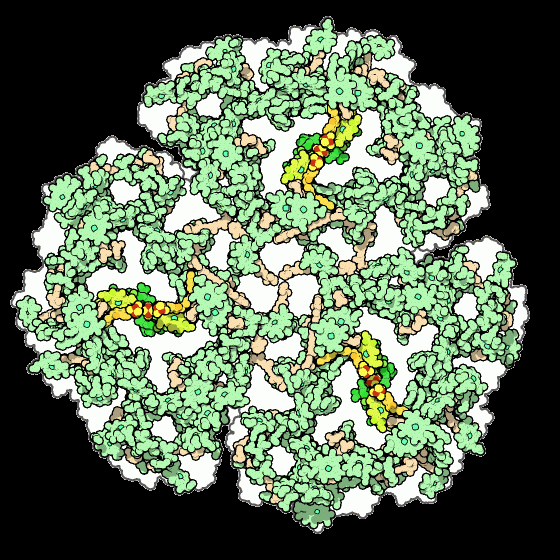That'd be a great title for a rap song dissing another rapper
5 Minutes after inventing the Summit All-In-One appliance featuring two electric burners, a MOMCUBE™ breast milk refrigerator, sink, and cabinet space : bro, here me out.
Bro, I think I just figured something out. Technology affects not only our ability to act on the world, but the lens through which we see the world as it acts on us. Our mind doesn’t differentiate between the patterns of thought which we learn to operate technology and the patterns of thought we use to navigate the rest of our life.
Seems like there’s implications there in terms of modern tech being created by and for a capitalist system.
this is how and why language can constrain as much as it liberates. language is as much a technology as any other human invention.
Wait, you mean to tell me that the production of ideas, of conceptions, of consciousness, is at first directly interwoven with the material activity and the material intercourse of men, the language of real life? And that conceiving, thinking, the mental intercourse of men, appear at this stage as the direct efflux of their material behaviour?
Someone should write a book on that!
:curious-marx:
5 minutes after the invention of metaphors:
:bruh: , the whole universe, which I am unable to grasp in its totality, owing to both its vastness as well as my mortality, is perfectly, profoundly, and literally analogous to a simple physical process I am able to observe in my daily life :i-told-you-dog:
Seriously though, there will never be a more general notion of an observable mechanism than computation, it's practically tautological, so the last one is at least more correct than the others
It’s more about the abstraction. You could construct a machine from clock parts that’s Turing complete. There are plenty of computers that are observable in the sense that you mean.
I’m reading this again and thinking you might have been being facetious. My bad lol
I'm not sure I follow. Surely, more people have observed the action of wheels than any of the others.
The abstract process of computation as implemented by anything we'd call a computer is equivalent to any possible mechanism that operates on information.
There can never be any mechanism that deals with information that can ever be more general than classical computing.
Data is most general concept we (can) have for anything that can be known or observed. If it can't be known or observed, it can't have any tangible effect, so you can never make a mechanism that operates on it. It's not a cop-out, it's the exact opposite.
I think I see the disconnect here. When I say general, I also mean specific. That is to say, when I say that computers are general, I mean to say that any given, specific, individal computer (including a bird if it was smart enough), given any and every specific task and some amount of memory, can do it if and only if it is possible at all.
In other words, computers are interchangeable, you only need one and it can do any task (with enough memory)
This isn't true for a watch or a wrench or a wheel, but it's true for any computer.
With this definition of general, as you can see, there is nothing vague about the statement at all, and it can't be understood as a cop out.
Sorry for being unclear, I definitely understand why your interpretation of general in my comment is valid.
That is not provedly true. Turing machines are just a form of computation, fairly sure we've not proved they're the only possible kind.
Unfortunately, we've proven that all physically known processes can be simulated on a Turing machine, so unless there is some crazy new discovery of physics, there is no kind of computation that can do something Turing machines can't. It's not the only kind, but it's equivalent to any other that is possible we've come up with, and to any we could physically implement with our knowledge of physics. It would be very cool if that wasn't the case, though.
Feynman wrote a paper about it in the 80s, called "Simulating Physics with Computers", in which he lays out how all known laws of physics can be simulated using a computer to sufficient accuracy, but that without a quantum computer it would take exponential time to do so.
This also happens in biology wrt cells (well, the latter two, anyway)
Funny that Deleuze and Guattari argue against westerners’ tendency to think about things in trees by proposing we instead think in rhizomes. The biological and botanical analogies go deep.
Computers can efficiently calculate anything that can possibly be calculated, predict anything that can be predicted, simulate anything that can be simulated, etc..., so they actually are kinda special in a way that previous things aren't.
The mechanisms of computation have allowed us to prove beyond a shadow of a doubt that there are true things that cannot be proven, and that there is such a thing as an unknowable quantity. It also turns out that predicting if certain particular computer programs will ever stop is equivalent to proving basically anything.
It's called the Church-Turing hypothesis for the former, and then there's the Gödel incompleteness theorem for the second, as well as the Busy Beavers for the second. it's pretty neat.
Computers can efficiently calculate anything that can possibly be calculated
This is pretty much the P=NP problem though, which hasn't been proven (and many believe it'll eventually be proven in the negative), with 'efficient' being defined as polynomial time.
If something can only ever be calculated in exponential (or worse) time, then a computer which can calculate it in exponential time I'd say is still efficient, so it would be true whether or not P=NP. When I say that a computer is efficient what I really mean is that it's not exponentially worse than any other possible way of arriving at the result. I should have worded it better, sorry.
Why? If there is a number that can't be computed, and there's no evidence that it's physically present, what's the contradiction here?
Computers are only limited in creating things that can be proven because creating something is a proof that it exists. This has a more formal meaning if you look at the Curry-Howard correspondence.
They exist in the mathematical sense that they are basically the solution to an equation. We know the equation, we know there is a solution, but we don't know what the solution is, and it has no physical relevance. Many mathematicians (constructivists) would say that this means that they don't exist until you can find a way of finding the exact solution.
For many of these numbers, we know that there cannot be any rigorous procedure by which they can be found, because if there was, there would be a logical contradiction.
Damn these hands of mine, damn my brain that can produce only digital thought. Damn my palms that conceive only of what fits into them. Damn these fingers that will invade things, that will grasp and twist and peel and will not see.
Woah how about my pp actually, like maybe the universe is like a big ovary for my ego to impregnate or something
I can prove to you that there is literally nothing a physically possible quantum computer can do that a regular computer can't. It's a pretty common proof in any quantum computing class and isn't even particularly long.
It's up to you. If you ever took a linear algebra class (even if you failed it) it should be understandable.
Quantum programming exists now, and it can be simulated on traditional computers. It's also one of those things that really only has limited real world applications. There are some interesting algorithms that can be solved by quantum hardware that would just take a lot longer on traditional hardware.
The list of quantum algorithms isn't that long and while there are some major speed increases from application of quantum hardware, the systems are still bound by traditional computational rules.















